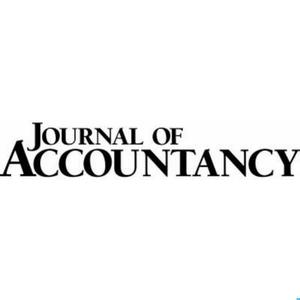
Journal of Accountancy Podcast
Journal of Accountancy
The Journal of Accountancy is the ultimate resource for today’s CPA.
- 16 minutes 22 seconds'A big tax year': What practitioners need to know now
It’s not even five weeks into 2025, and already there’s a bevy of news affecting tax practitioners. Melanie Lauridsen, the AICPA's vice president–Tax Policy & Advocacy, joined the Journal of Accountancy podcast amid all the tumult to update listeners on several fronts.
Lauridsen discussed the latest on beneficial ownership information (BOI) reporting and the Supreme Court, how IRS service might be affected by various executive orders, and what aspects of a new tax bill or bills are being followed closely by the AICPA.
One bit of related news happened Thursday, one day after recording. The Senate Finance Committee released a discussion draft, the bipartisan Taxpayer Assistance and Service Act, which includes provisions the AICPA strongly supports.
Resources:
- Melanie Lauridsen on LinkedIn
- The AICPA’s BOI resource center
- JofA coverage of the IRS rescinding some job offers
What you'll learn from this episode:
- A recap of court cases related to beneficial ownership information reporting requirements.
- The potential effects of an IRS hiring freeze on tax filing season.
- The role that retirements could play in future IRS service.
- Details of the AICPA’s interest in proposed Circular 230 regulations.
- Why tax legislation this year could come in pieces instead of in one bill.
30 January 2025, 10:02 pm - 13 minutes 11 secondsThe CFO who ran her own race but didn’t run (or swim or bike) alone
On LinkedIn, the congratulatory messages poured in for Janice Stucke, CPA, after she completed an Ironman triathlon in October. Those messages all had named authors — her LinkedIn contacts.
One message, from a still unknown author, attached to her bike on race day, continues to resonate with Stucke, the CFO of CREW Network.
In an earlier podcast episode, Stucke detailed her nontraditional path to becoming a CPA and, later, a CFO. In this conversation, Stucke recaps the obstacles she faced in the race, how problem-solving skills played a role in her crossing the finish line, and why she is thankful for a group of friends she first met at the Future of Finance Summit.
What you’ll learn from this episode:
· A recap of Stucke’s “exhilarating” day completing the triathlon.
· The reason Stucke felt nauseous during the run segment — and strategies she tried to overcome the feeling.
· The message that inspired Stucke — one that an unknown person put on her bike.
· The meaningful support of a group of finance leaders Stucke first met at the Future of Finance Summit.
· How completing the race helps in her role as a CFO.
· What her next big goal might be and why technology implementations will be prioritized this year.
· Why Stucke enjoys being around others who set audacious goals.
23 January 2025, 5:55 pm - 15 minutes 7 secondsRisk resolutions for 2025: Remember to put your No. 1 client first
Risk management, in the words of Sarah Ference, CPA, doesn’t have to be overly complicated or time consuming. “It’s really a mindset,” said Ference, an author of the JofA’s Professional Liability Spotlight column and the guest on this week’s episode of the JofA podcast.
Ference shares several risk management maxims that have resonated with her – ones that are the focus of the January column, Risk Management Mantras to Add to Your Daily Practice.
In addition, Ference details the topics in some previous Professional Liabillity Spotlights:
n October: 10 Tips to Help Avoid Wire Fraud Scams.
n November: Missed Due Dates: Diligence and The Lurking Danger.
n December: How to Not Lose Sleep Over NOCLAR.
What you’ll learn from this episode:
· Some of the risk management mantras that stand out to Ference.
· The difference between being friendly and objective with clients.
· The answer CPAs should give to the question “Who’s your most important client?”
· Why Ference says that being a natural helper can get in the way of a firm’s best interests.
· Explanation of the mantras “trust your gut” and “take the high road.”
· Highlights of other recent JofA Professional Liability Spotlight columns.
16 January 2025, 2:39 pm - 16 minutes 51 secondsHiring best practices: How to succeed in a competitive labor market
What’s the future of fully in-office work? What’s the hiring outlook for finance and accounting roles in 2025? Steve Saah, the executive director of the finance and accounting permanent placement practice at Robert Half, tackles those and other questions in this episode of the Journal of Accountancy podcast, recorded in December in San Diego.
Saah discusses how companies have to walk a fine line when it comes to requiring in-office minimum hours or days – and how that tightrope can affect the pay they offer new employees.
The episode is the first of 2025 and the second from the Future of Finance Summit. In the first summit-focused episode, four CPA leaders looked back on what they learned and ahead to their expectations for 2025.
What you’ll learn from this episode:
· Saah’s assessment of the future of fully in-office work.
· The tie-in between required time in an office and recruiting new hires.
· How the amount of time agreed upon to spend in the office could affect a new hire’s pay.
· Is the annual employee review a thing of the past?
· The hiring outlook for finance and accounting professionals and the in-demand skills for those roles.
9 January 2025, 6:30 pm - 29 minutes 1 secondSeeing the future: 4 CPA leaders look ahead to 2025
Last week in San Diego, a group of 165 finance leaders convened for the fourth Future of Finance Summit. This JofA podcast episode is a compilation of takeaways from the event and a look at key areas of focus for leaders in 2025. It is the first of several Future of Finance recordings.
The speakers for this episode are:
n Tom Hood, CPA/CITP, CGMA, AICPA & CIMA's executive vice president–Business Growth & Engagement
n Kimberly Ellison-Taylor, CPA, CGMA, the CEO of KET Solutions and former AICPA chair
n Becca Shane, CPA, CGMA, the CFO of Blue Marlin Ventures
n Okorie Ramsey, CPA, CGMA, vice president–Sarbanes Oxley at Kaiser Permanente and former AICPA and Association of International Certified Professional Accountants chair
What you’ll learn from this episode:
· More about Tom Hood's summation that the event "leveled up."
· The top priorities of finance leaders, based on polling last week at the Future of Finance Summit.
· Why Kimberly Ellison-Taylor says she’s looking forward to “clarity” in 2025.
· Why the phrase “feed forward” and an emphasis on positivity resonated with CFO Becca Shane.
· Okorie Ramsey's focus on the talent pipeline and relevance.
· His explanation of the profession’s need to “tell a better story.”
19 December 2024, 5:58 pm - 14 minutes 27 secondsFarewell Q&A as CEO: Melancon talks retirement, passion for profession
It’s no secret anymore: Barry Melancon, CPA, CGMA, is retiring as CEO of AICPA & CIMA. He was first named CEO of the AICPA nearly 30 years ago, and he leaves the now global organization with a legacy of change. His last official day is Dec. 31, and Mark Koziel, CPA, CGMA, is his successor.
In this episode of the JofA podcast, recorded earlier this week at Digital CPA in Denver, Melancon explains why he’s not counting down the days of his tenure, why there likely will be more recreation in his future, and why he expects he will “still wake up every day and think about the profession.”
What you’ll learn from this episode:
· Why Melancon hasn’t been counting the days until his tenure as CEO ends.
· His “stellar” assessment of how he will transition into retirement.
· His relationship over the years with incoming CEO Mark Koziel, CPA, CGMA.
· The “unsettled” nature of the world and how accountants can help.
· Why Melancon prioritized the profession and the members before thinking of the organization.
· The “humbling” messages he has received.
12 December 2024, 2:39 pm - 7 minutes 24 secondsA change in optimism about the US economy
The potential for less regulation is one factor driving optimism among CPA decision-makers in a quarterly survey, according to Ken Witt, CPA, CGMA, AICPA & CIMA associate director–Management Accounting Research and Development.
Witt joined the JofA podcast to discuss fourth-quarter results of the Business and Industry Economic Outlook Survey — statistics that were dramatically different from the third quarter.
The executives are mostly optimistic about the domestic economy in 2025. They also have a brighter outlook as it relates to their own organizations, although that increase since the third quarter was more muted.
What you’ll learn from this episode:
- A breakdown of the quarter-over-quarter change in optimism.
- What challenge returned to its familiar top spot in this quarter’s survey.
- The reasons that optimists and pessimists feel the way they do, according to Witt’s analysis.
- The hiring outlook for 2025.
5 December 2024, 7:34 pm - 18 minutes 22 seconds2025 tax preview: Perspective from an AICPA tax policy advocate
Melanie Lauridsen, vice president–Tax Policy & Advocacy for the AICPA, reflected on how election results might inform future tax legislation and why any change in administration and tax policy can make it more difficult for practitioners seeking clarity.
Lauridsen also discussed advocacy related to beneficial ownership information (BOI) reporting and what might change related to IRS funding, the corporate tax rate, and more in this episode of the Journal of Accountancy podcast.
What you’ll learn from this episode:
· An update on AICPA advocacy related to BOI reporting relief.
· Why Lauridsen expects any changes to the expiring provisions of the Tax Cuts and Jobs Act (TCJA) to be “hybrid” — as opposed to all TCJA provisions becoming permanent.
· Discussion about the future of the deduction limit for state and local taxes, aka the SALT cap.
· The fate of IRS funding from the Inflation Reduction Act — and why a “rebalance” might be possible.
· Lauridsen’s summation that 2025 “is a huge tax year.”
21 November 2024, 7:53 pm - 17 minutes 4 secondsFuture leaders, be advised: ‘What got you here … won’t get you there’
Tom Hood, CPA/CITP, CGMA, executive vice president–Business Growth and Engagement at AICPA & CIMA, understands why accounting skills are often ranked outside the top five of key skills in informal polling of finance audiences.
“It’s not because they're less important, but because the other skills are more important,” Hood said.
The core requirements remain, but the ability to adapt and add new skills has grown in importance with the pace of transformation accelerating.
In this episode of the JofA podcast, Hood expands on some recent themes of his travels and what he looks forward to from the Future of Finance Summit in December.
What you’ll learn from this episode:
· Why mindset is more important in transformation than the toolset of technology.
· Details of a recent report about skills from the Pennsylvania Institute of CPAs.
· The skills that rank ahead of the “table stakes” of technical accounting skills.
· Why it’s important to “grab these new skills.”
· The new way that Future of Finance Summit attendees will get a summary of the event.
14 November 2024, 3:44 pm - 15 minutes 39 secondsDriving better savings discipline and loving the work you do
Stig Nybo is not afraid to admit that he’s made mistakes. He’s also happy to have been part of a movement that improved the thinking around retirement savings.
Nybo, a keynote speaker at the Employee Benefit Plans Accounting, Auditing, and Regulatory Update, a Dec. 4-5 virtual event, co-wrote the book Transform Tomorrow: Awakening The Super Saver in Pursuit of Retirement Readiness.
In this episode of the JofA podcast, Nybo talks about finding passion at work, why attempts to fix things can lead to breaking other things, and the “entire ecosystem” that’s aiming to drive better retirement-savings habits.
What you’ll learn from this episode:
· The circumstances that led to Nybo co-authoring a book emphasizing saving for retirement.
· The 2019 JofA podcast guest that Nybo interviewed for his book.
· Why his message is about more than saving, creating retirement plans, or auditing such plans.
· Why he agrees with the words of Mark Twain when it comes to career choice.
· The issues Nybo and others aimed to fix related to retirement saving – and what got “broken” in that process.
7 November 2024, 7:43 pm - 16 minutes 2 secondsHow auditors can demystify transformative technology
Digital disruption is everywhere, including in the practice of internal audit. An audit leader joined the JofA podcast recently to discuss how technology can be harnessed instead of feared or resisted.
Anthony Pugliese, CPA/CITP, CGMA, president and CEO of The Institute of Internal Auditors (IIA), said it is understandable for fast-moving technology to be daunting. But such technology presents opportunities as well as risks. One tie-in is the new tools’ ability to attract the next generation of talent for auditing.
In this episode, Pugliese reviews recent IIA research, reminds auditors about the importance of curiosity, and discusses some of the misconceptions facing the profession.
What you’ll learn from this episode:
· Highlights of recent research by The IIA about top risks.
· Some of the “misconceptions” about internal auditing, according to Pugliese.
· How the “slow trek” of blockchain integration into processes differs from today’s tech implementations.
· The “most golden thing” auditors can do.
· A reminder of the timeline for adoption of international auditing standards.
31 October 2024, 7:09 pm - More Episodes? Get the App
Your feedback is valuable to us. Should you encounter any bugs, glitches, lack of functionality or other problems, please email us on [email protected] or join Moon.FM Telegram Group where you can talk directly to the dev team who are happy to answer any queries.
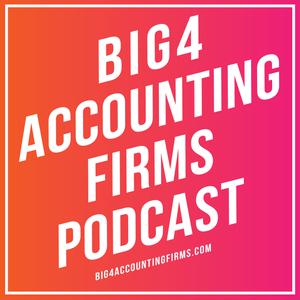 The Big 4 Accounting Firms Podcast
The Big 4 Accounting Firms Podcast
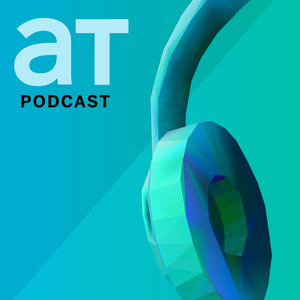 Accounting Today Podcast
Accounting Today Podcast
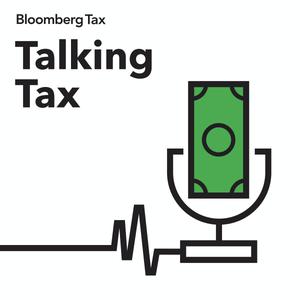 Talking Tax
Talking Tax
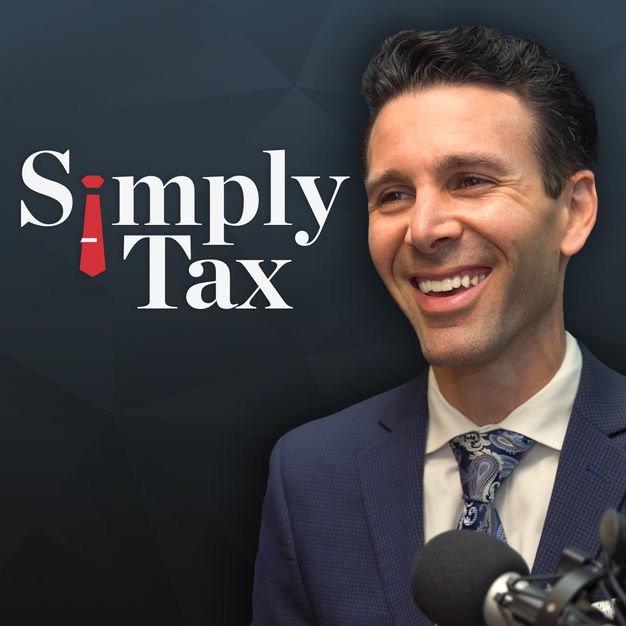 Simply Tax
Simply Tax
 Accounting Best Practices with Steve Bragg
Accounting Best Practices with Steve Bragg
 AICPA Insights
AICPA Insights